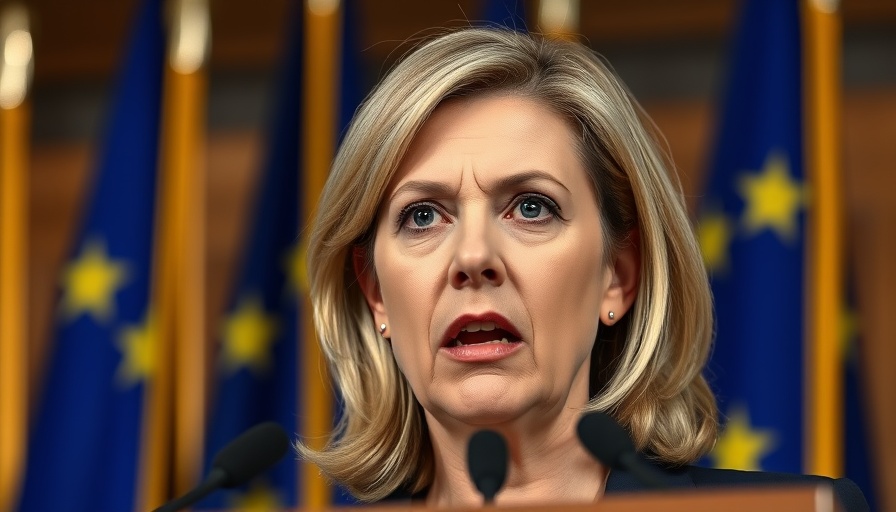
The Controversy Surrounding Italy's Spyware Use Against Activists
In a troubling development, Italian lawmakers have revealed that the government utilized sophisticated spyware developed by the Israeli firm Paragon, targeting immigration activists in an effort to stem illegal immigration. The revelations emerged from a report by the Parliamentary Committee for the Security of the Republic (COPASIR), shedding light on the surveillance tactics employed by authorities amidst rising global concerns over privacy and state overreach.
Understanding the Spyware: What is Graphite?
Paragon's software, known as Graphite, has come under intense scrutiny following its reported use in Italy. Designed to exploit vulnerabilities in mobile devices, Graphite allows intelligence agencies to monitor communications discreetly. The ethics of using such invasive technology against individuals working to help endangered immigrants raises significant questions about governmental priorities and civil liberties.
The Targets: Who Were Affected?
The investigation spotlighted two prominent activists, Luca Casarini and Giuseppe Caccia, associated with Mediterranea Saving Humans—a nonprofit organization dedicated to rescuing immigrants in perilous sea crossings. The Italian government justified the surveillance, contending that it was necessary to investigate allegations of aiding illegal immigration. However, this justification does little to assuage concerns about the potential for abuse of power.
Journalist Exemption: An Anomaly or a Strategy?
Interestingly, the report indicated that Francesco Cancellato, a well-known journalist who received a notification from WhatsApp about potential spyware targeting, was not actually spied upon by Italy’s intelligence agencies. The COPASIR committee claimed to have thoroughly checked the database and found no relevant activity linked to him. This distinction prompts further inquiry into whether journalists are deliberately spared from direct surveillance as a measure to maintain a facade of media freedom.
The Broader Implications: Privacy, Surveillance, and Activism
The case of the Paragon spyware resonates beyond Italy, illuminating a global narrative of growing surveillance practices. In many parts of the world, the balance between national security and individual privacy continues to falter, with activists often becoming targets due to their dissenting voices. This phenomenon underscores the need for robust discussions and actions regarding data protection rights.
Comparative Perspectives: Global Trends in Digital Surveillance
Similar accusations have surfaced internationally, where governments exploit technology to monitor political opponents and activists. In countries like Hungary and Poland, where democratic backsliding is prevalent, state surveillance tactics mirror those seen in Italy, highlighting the need for heightened vigilance against autocratic practices disguised as necessary security measures. The actions seen in Italy may serve as a cautionary tale for nations grappling with similar issues.
A Call for Accountability
As the investigation unfolds, the onus is on both government and technology firms to promote transparency and ethical policies regarding surveillance. Activists, journalists, and everyday citizens alike must advocate for their rights and demand oversight mechanisms that maintain checks against potential abuses inherent in such technologies. Ensuring a society that values privacy and freedom is paramount as we head deeper into a digital age.
Conclusion: Navigating the Privacy Landscape
In essence, the case of Italy using spyware against immigration activists represents a significant intersection of technology, ethics, and human rights. The revelations call not only for accountability but also for a broader global conversation about the implications of surveillance in our increasingly connected worlds. With technologies rapidly evolving, it is essential that we, the public, remain alert to the risks of governmental overreach, advocating for policies that uphold individual rights alongside national security needs.
 Add Row
Add Row  Add
Add 



Write A Comment